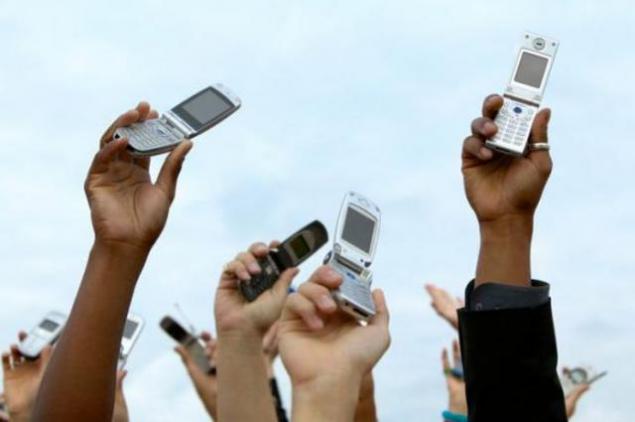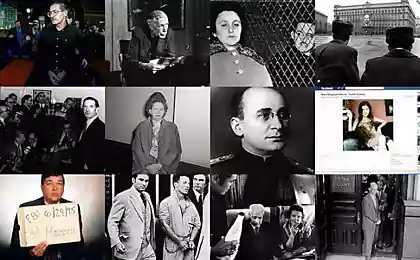502
Unusual state bans
I suggest you to read further about the most bizarre and unusual prohibitions in the different countries of the world. Quite interesting. Read.
Greece: Video Games

In 2002, in Greece, it was decided to prohibit absolutely all kinds of computer games
- From game consoles to online solitaire.
The decision was made when the government is desperate to hold a clear line
between relatively harmless games against harmful slot machines.
However, soon after that a local court found the ban unconstitutional.
And although the law still seems to be there, it seems,
that the Greek government just waved his hand at him.
China: Reincarnation

Without government permission every attempt of reincarnation in China are considered illegal.
For the majority of Chinese big problem is not the ban, but the Buddhist
Monks brings a lot of inconvenience.
Quite a complicated procedure for obtaining permits was introduced as "an important step toward,
to give legal status to reincarnation »,
but in fact - just an attempt to limit the influence of the Dalai Lama and the Buddhist Church in Tibet.
The current Dalai Lama 77 years, and he refuses to be reborn in Tibet, while he is under the control of China.
It is possible that in the future at the same time there will be two Dalai Lamas - one will be selected
The Chinese government, in accordance with their laws, and the other - Buddhist monks.
China: Time travel

We are talking about do not even own travels, and their images in any form.
In early 2011, the Office of Radio,
China's film and television announced that film and television are banned
Any time travel.
Prior to this topic travel into the past and the future was one of the most popular
Chinese television.
However, the government decided that such films "create a harmful myth, possess disgusting,
ugly and absurd stories that promote feudalism, superstition, fatalism and reincarnation. "
It seems that the film "time loop" enjoyed great popularity among the Chinese.
Cuba Mobile phones

During the reign of Fidel Castro owners of mobile phones in Cuba
It can be counted on the fingers.
And not because of the high cost of the devices, and because of the ban - this allows you the luxury of only
representatives of the executive power,
related to foreign companies or party officials of the highest rank.
Fidel Castro himself called the ban on mobile
Phones "necessary sacrifice" in the "battle of ideas."
In 2008, came to power, Raul Castro, Fidel's brother.
One of his first steps was lifting the ban on mobile communications.
From
Greece: Video Games

In 2002, in Greece, it was decided to prohibit absolutely all kinds of computer games
- From game consoles to online solitaire.
The decision was made when the government is desperate to hold a clear line
between relatively harmless games against harmful slot machines.
However, soon after that a local court found the ban unconstitutional.
And although the law still seems to be there, it seems,
that the Greek government just waved his hand at him.
China: Reincarnation

Without government permission every attempt of reincarnation in China are considered illegal.
For the majority of Chinese big problem is not the ban, but the Buddhist
Monks brings a lot of inconvenience.
Quite a complicated procedure for obtaining permits was introduced as "an important step toward,
to give legal status to reincarnation »,
but in fact - just an attempt to limit the influence of the Dalai Lama and the Buddhist Church in Tibet.
The current Dalai Lama 77 years, and he refuses to be reborn in Tibet, while he is under the control of China.
It is possible that in the future at the same time there will be two Dalai Lamas - one will be selected
The Chinese government, in accordance with their laws, and the other - Buddhist monks.
China: Time travel

We are talking about do not even own travels, and their images in any form.
In early 2011, the Office of Radio,
China's film and television announced that film and television are banned
Any time travel.
Prior to this topic travel into the past and the future was one of the most popular
Chinese television.
However, the government decided that such films "create a harmful myth, possess disgusting,
ugly and absurd stories that promote feudalism, superstition, fatalism and reincarnation. "
It seems that the film "time loop" enjoyed great popularity among the Chinese.
Cuba Mobile phones

During the reign of Fidel Castro owners of mobile phones in Cuba
It can be counted on the fingers.
And not because of the high cost of the devices, and because of the ban - this allows you the luxury of only
representatives of the executive power,
related to foreign companies or party officials of the highest rank.
Fidel Castro himself called the ban on mobile
Phones "necessary sacrifice" in the "battle of ideas."
In 2008, came to power, Raul Castro, Fidel's brother.
One of his first steps was lifting the ban on mobile communications.
From
























